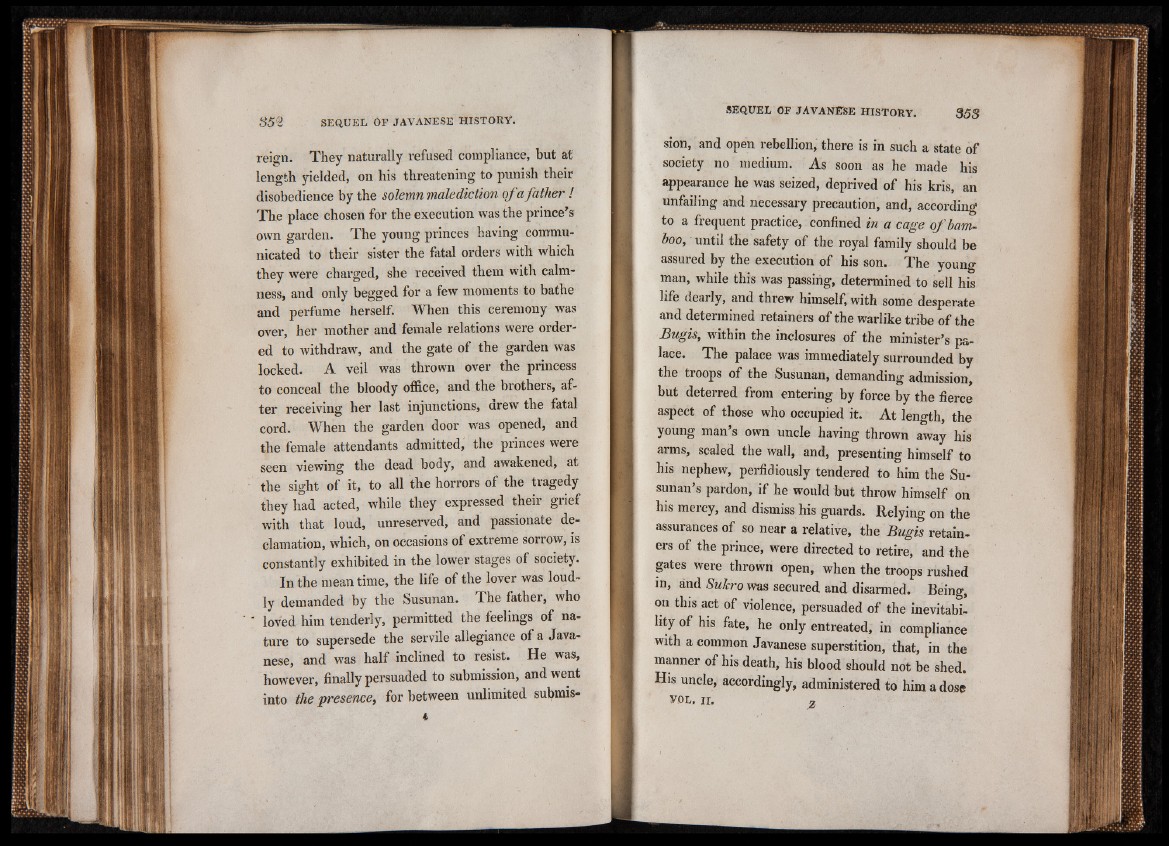
reign. They naturally refused compliance, but at
length yielded, on his threatening to punish their
disobedience by the solemn malediction ofa father !
The place chosen for the execution was the prince’s
own garden. The young princes having communicated
to their sister the fatal orders with which
they were charged, she received them with calmness,
and only begged for a few moments to bathe
and perfume herself. When this ceremony was
over, her mother and female relations were ordered
to withdraw, and the gate of the garden was
locked. A veil was thrown over the princess
to conceal the bloody office, and the brothers, after
receiving her last injunctions, arew the fatal
cord. When the garden door was opened, and
the female attendants admitted, the princes were
seen viewing the dead body, and awakened, at
the sight of it, to all the horrors of the tragedy
they had acted, while they expressed their grief
with that loud, unreserved, and passionate declamation,
which, on occasions of extreme sorrow, is
constantly exhibited in the lower stages of society.
In the meantime, the life of the lover was loudly
demanded by the Susunan. The father, who
loved him tenderly, permitted the feelings of nature
to supersede the servile allegiance of a Javanese,
and was half inclined to resist. He was,
however, finally persuaded to submission, and went
into the presence, for between unlimited submission,
and open rebellion, there is in such a state of
society no medium. As soon as he made his
appearance he was seized, deprived of his kris, an
unfailing and necessary precaution, and, according
to a frequent practice, confined in a cage o f bamboo,
until the safety of the royal family should be
assured by the execution of his son. The young
man, while this was passing, determined to sell his
life dearly, and threw himself^ with some desperate
and determined retainers of the warlike tribe of the
Bugis, within the inclosures of the minister’s palace.
The palace was immediately surrounded by
the troops of the Susunan, demanding admission,
but deterred from entering by force by the fierce
aspect of those who occupied it. At length, the
young man’s own uncle having thrown away his
arms, scaled the wall, and, presenting himself to
his nephew, perfidiously tendered to him the Su-
sunan’s pardon, if he would but throw himself on
his mercy, and dismiss his guards. Relying on the
assurances of so near a relative, the Bugis retainers
of the prince, were directed to retire, and the
gates were thrown open, when the troops rushed
m, and Sukro was secured and disarmed. Being,
on this act of violence, persuaded of the inevitability
of his fate, he only entreated, in compliance
with a common Javanese superstition, that, in the
manner of his death, his blood should not be shed.
His uncle, accordingly, administered to him a dose
VOL. II. £